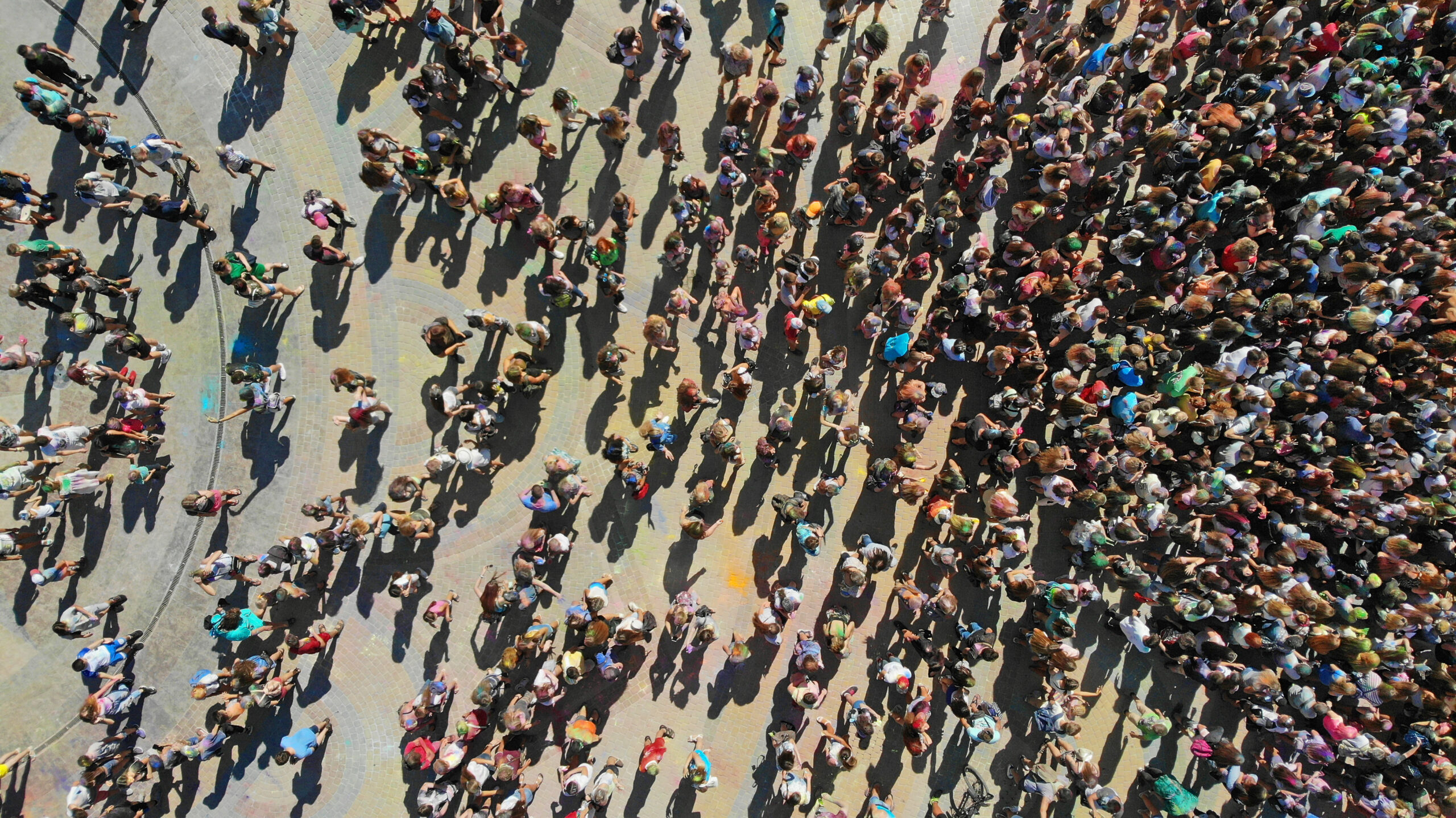How to solve the world’s overpopulation problem and end poverty
November 20, 2015 |
| 6 min read

The earth is far from being overpopulated. There are small parts of it (we call cities and their suburbs) that are very crowded and very overpopulated. But as a whole, there is more than plenty of room to accommodate many, many more humans. One can travel many hours in any of the countries of the world without running into crowds of people, or even any people for that matter. The problem of overpopulation comes from the need of a person to have the basic necessities of life that can only be purchased with money. Money, along with its production, management, distribution, and economic application, is primarily concentrated in the cities of the world. In order to live, people have to go to where the money is. Humans congregate in the major cities of the world in search of employment to provide them with the money that they need to purchase the basic necessities of life.
Whereas, all the money is concentrated in the cities, the main resources that create the goods for which money is exchanged exist in sparsely populated rural areas. As a city’s population increases, because of the necessity to buy and sell to support the lives of the people living there, the value of the materials from the rural areas of earth become more and more dependent on getting into the cities. Rural products and materials are not very profitable to the rural population, if rural residents don’t have enough money to purchase them. But what if the people in the rural areas of the world had all the money, or at least had enough to buy all the basic necessities of life they needed? Is it logical to assume that a person would move away from a peaceful rural setting into a crowded city by choice?
The strongest world governments are always found in the major cities of the world, where all the money is. When the governments need to print more money, they do so to provide the means of exchange for the goods and services of the cities in which they exist and hold power. The more people who migrate to the cities, the more money that is needed to accommodate the goods and services provided for them.
Look at it this way:
Consider a city that has 100 dollars that is spread among its inhabitants, not necessarily equally, because there will always be rich and poor when money is the value that is placed on human trade interactions and the greater the portion of the 100 dollars one has, the higher the respect. When a person migrates to the city, that person usually doesn’t have any money. That’s why the person is coming to the city in the first place: to get some of the money found there. But there’s only 100 dollars available, so who is going to give up their part of the 100 dollars to help the poor immigrants?
Well, the rich people, who run the government, have the authority to issue more money, but only according to their own needs and in support of their ability to continue to govern and control the people. If a lot of people come in search of a part of the 100 dollars, and there is no increase in the money supply, there’s going to be a lot different ways to get a part of the 100 dollars. These ways usually end in criminal activity or protests and revolution. So governments do all that they can, legally (because when a government does something it becomes legal), to ensure that they can continue to control the people.
Governments do, they must, and they always will, issue new money to provide for the needs of their citizens. Modern governments have learned that this is the ONLY way to control the masses. It was the Great Roman Empire’s lack of regulation in issuing coinage, and its inability to control inflation, that eventually led to its demise. Things have changed quite a bit since the end of the Great Roman Empire. Even then, however, the areas of the earth that became the major cities of commerce and power controlled all the money and forced people to migrate to these cities in search of the basic necessities of life. And the more the Roman Empire extended its borders, the more control it took of the rural resources, which it exploited and sent to the major cities that supported its government.
There would be no overpopulation of any area of the earth, IF the people were able to continue to live and provide for their basic necessities anywhere they chose to reside. With modern technology, some of the greatest consumer-based cities in the world exist where no life before could have ever existed. Dubai of the United Arab Emirates and Las Vegas, Nevada of the United States are modern examples of the ability of humans to live anywhere upon earth with tremendous prosperity and abundance.
If every human being were issued a THumP® HumanECard® (a credit/debit card that allows a person to purchase the basic necessities of life, food, clothing, shelter, health/mental care, and education from any source of their choice, found anywhere in the world), there would be no part of Earth, where humans congregate together, that would experience economic turmoil. Humans would choose the area of the earth where they wanted to live and be supported therein.
If the people in the rural areas have access to money, then the goods and services that they demand will come to them, spreading out the world’s population proportionately to the needs of the people no matter in what area of the earth they live. If a wealthy contractor knew that the people living in rural Kenya had money for homes, for example, that contractor would set up shop and provide them with homes. But new money must be created and provided to the people of Kenya.
This is a simple and logical, and unchallengeable solution, not only to the world’s overpopulation problem, but to end worldwide poverty. But what keeps seemingly logical people from accepting and implementing this simple solution? The easy answer is: their ignorance of how money is created, managed, and supported by their governments. The more complex answer is in how they were reared and educated by their parents.
“Money doesn’t grow on trees! Nothing is free in this world. Nobody gets a free ride in life. You have to work for what you get!” are typical statements by which modern parents brainwash their children. Thus inculcated from childhood, as adults they simply can’t perceive any solution outside of these ridiculous and ignorant statements. Adults accept what their parents taught them and fight any new idea that counters what they were taught.
The fact is, money DOES grows on trees, at least for those who have planted their money in investment orchards where one doesn’t have to be present nor provide labor in order for the money to grow in abundance. This is how the wealthy get wealthy and remain wealthy. And … there’s a lot of free money in the world, but it usually goes to help keep the wealthy, wealthy by bailing out the companies that tend their financial orchards. The American Dream implies that one can eventually retire from work and still have all their needs and wants provided for.
What our parents taught is not the real truth. And until we can accept the fact that our parents’ ignorance is responsible for the problems we face in the world today, there will continue to be natural resistance to the simple solutions that can change our world overnight. … (end of excerpt)
THumP® has the solutions. No one else does®!


